General pain, tooth sensitivity, colour abnormalities, irritated gums, and a higher risk of tooth pulp damage are a few negative effects of dental veneers. Veneers have long-term implications that need to be taken into account before choosing the course of therapy, even though the side effects are often transient. The need for replacement or repair, an increased risk of tooth decay, and potential harm to the underlying tooth structure are all risks associated with veneers
It's crucial to address the potential side effects and dangers with a licensed dental practitioner, before selecting whether veneers are the best option for an individual. Dentistry veneers are a well-liked cosmetic surgery for enhancing the look of teeth, but they have possible hazards and side effects like any other therapy. It's crucial to be informed of any potential drawbacks, even though many individuals find veneers to be beneficial.
A common cosmetic dentistry procedure that enhances a patient's teeth's look is dental veneers. Thin, custom-made shells are applied to their front surfaces to hide flaws and improve the form and colour of teeth. Dental veneers give a gorgeous, natural-looking smile, but there are dangers and negative effects involved.
Dental veneers endure for 10-15 years or longer with good maintenance, in terms of long-term impacts. The veneers need to be replaced if they get stained or damaged over time. Moreover, the veneers break or chip if the patient grinds or clenches their teeth.
Some people have an adverse response to the veneers' components regarding dangers. It is crucial to keep in mind that once the tooth enamel has been removed in order to put on the veneers, it is not able to be restored, increasing the risk of future tooth decay and other dental issues.
Dental veneers give a gorgeous, natural-looking smile, but they are not without hazards and adverse consequences. Patients must go over the risks with their dentist before having the operation done and practice good dental hygiene to extend the lifespan of their veneers.
Listed below are the Five Side effects of Dental Veneer.
- General Discomfort: Some individuals feel pain or discomfort after receiving veneers. It happened because a tiny bit of tooth enamel was removed to make room for the veneers, which make the region sensitive and uncomfortable. The soreness normally goes away on its own within a few days.
- Teeth Sensitivity: One typical adverse effect of dental veneers is sensitivity to hot and cold temperatures. It happens as a result of the veneers covering the tooth's surface, which increases its sensitivity to temperature fluctuations. The sensitivity is often momentary and goes away on its own with time.
- Irregularities in colour: It is possible for the colour to seem somewhat different in some lighting conditions or from particular angles although veneers are made to match a patient's teeth's natural shade. It is particularly true if veneers are applied to several teeth. Patients occasionally need to have the veneers altered or replaced to attain a more natural appearance.
- Inflamed Gums: Some patients have gum inflammation or discomfort after receiving veneers. The gums irritate if the veneers are not positioned properly. Brushing and flossing the teeth regularly help prevent the adverse effect.
- Increased Chance of Tooth Pulp Damage: The procedure of shaping teeth for veneers harm the tooth's pulp, which is uncomfortable and painful in a small percentage of situations. More dental work, such as a root canal, is necessary to fix it.
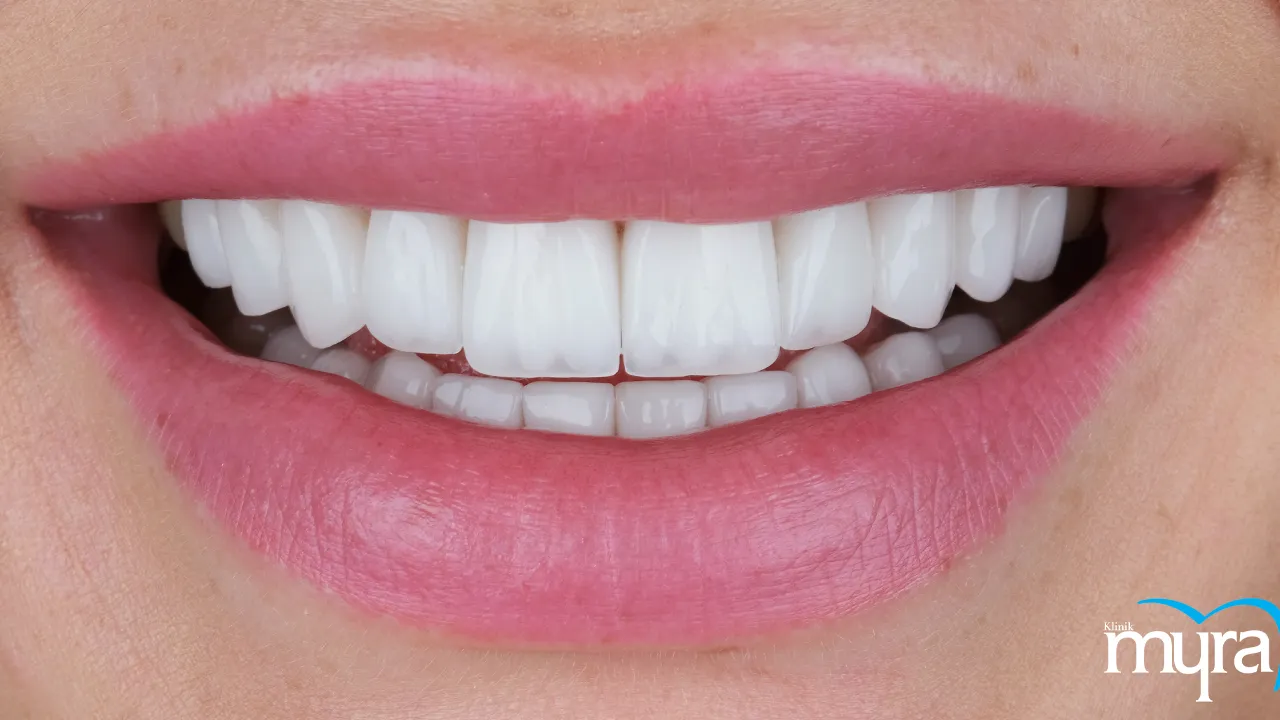
1. General Discomfort
Some people who receive dental veneers frequently report general pain following the treatment. The sensation is frequently characterized as one of pressure or tightness, and it usually manifests as a minor soreness or sensitivity in the teeth and gums around the veneers.
General discomfort following the treatment is typical and must not cause severe pain or discomfort that lasts for a long time. However, it's crucial to call the dentist right away if the soreness continues or worsens.
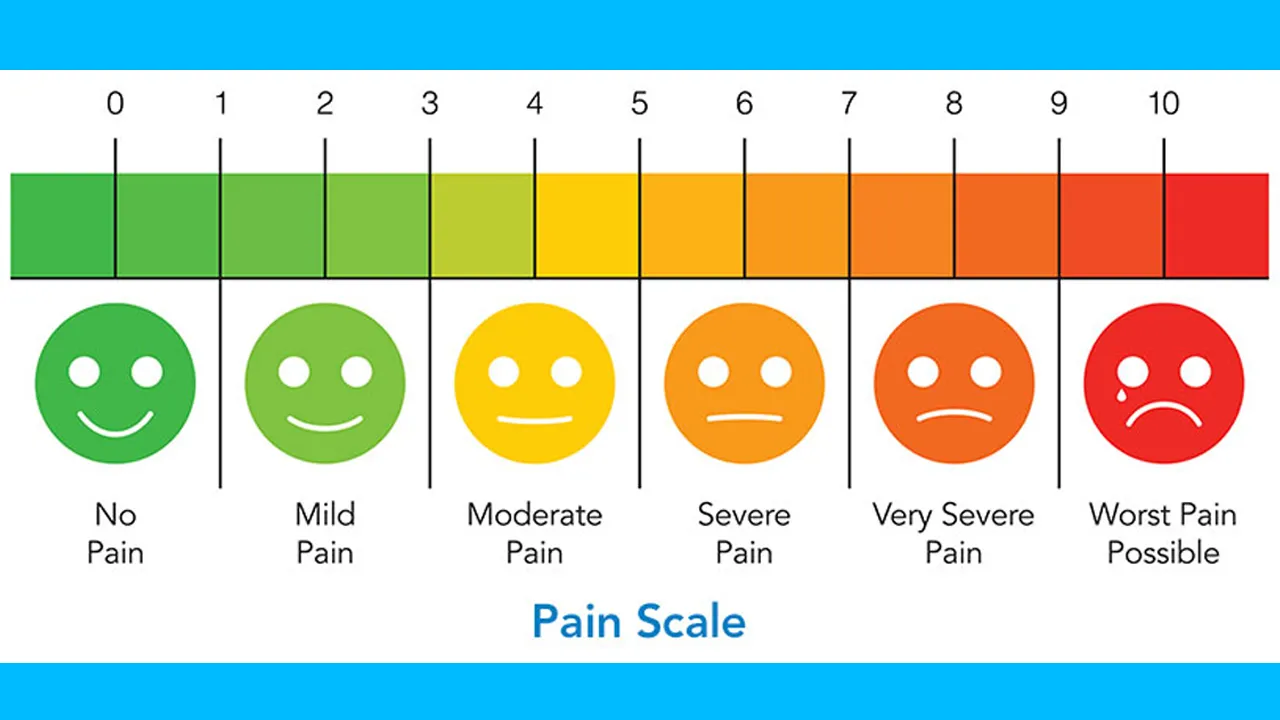 A tiny bit of tooth enamel has been removed in order to make room for the veneers, which have caused some discomfort. The procedure is required to guarantee that the veneers fit properly and adhere to the teeth. The teeth feel sensitive or sore after the process because of the modest modification of the tooth structure.
A tiny bit of tooth enamel has been removed in order to make room for the veneers, which have caused some discomfort. The procedure is required to guarantee that the veneers fit properly and adhere to the teeth. The teeth feel sensitive or sore after the process because of the modest modification of the tooth structure.
Patients take over-the-counter pain relievers such as ibuprofen or acetaminophen to reduce overall discomfort, and they must refrain from eating hard or crunchy foods for a few days following the treatment. Moreover, good dental hygiene habits like brushing and flossing ease pain and hasten recovery.
It is critical to let the dentist know if one feels any discomfort after obtaining veneers. The dentist evaluates the issue and offers suggestions on how to properly manage any pain or discomfort.
Are Veneers hurt?
Yes, veneers hurt. Veneers can cause some discomfort as pain or sensitivity, although this is typically temporary and manageable. One primary cause is the tooth preparation process, which involves removing a thin layer of enamel to fit the veneer properly; this can lead to mild sensitivity, especially to hot or cold temperatures. Secondly, some individuals may experience soreness around the gums immediately after veneer placement due to irritation from the bonding agents or minor adjustments during the procedure. Finally, improper fitting or misalignment of veneers can result in pressure or pain during biting or chewing, emphasizing the importance of precise fitting by an experienced dentist.
Discussing your concerns with your dentist helps ensure you understand why veneers hurt and how to minimize discomfort effectively.
2. Tooth Sensitivity
Tooth sensitivity, which refers to an increased sensitivity to hot or cold temperatures in the teeth, is another frequent unpleasant effect caused by dental veneers. Patients complain of a stabbing or piercing pain in the teeth whenever they consume something hot or cold, whether it be a beverage or a meal.
There is a temporary but normal increase in the tooth's sensitivity when veneers are placed. However, it is very necessary to consult a dentist if the sensitivity is severe or continues for an extended period of time.
The teeth become more sensitive to variations in temperature as a result of the veneers covering the tooth's surface. A very little portion of the tooth enamel is removed during the process of preparing the teeth for veneers. It results in an increase in the sensitivity of the teeth.
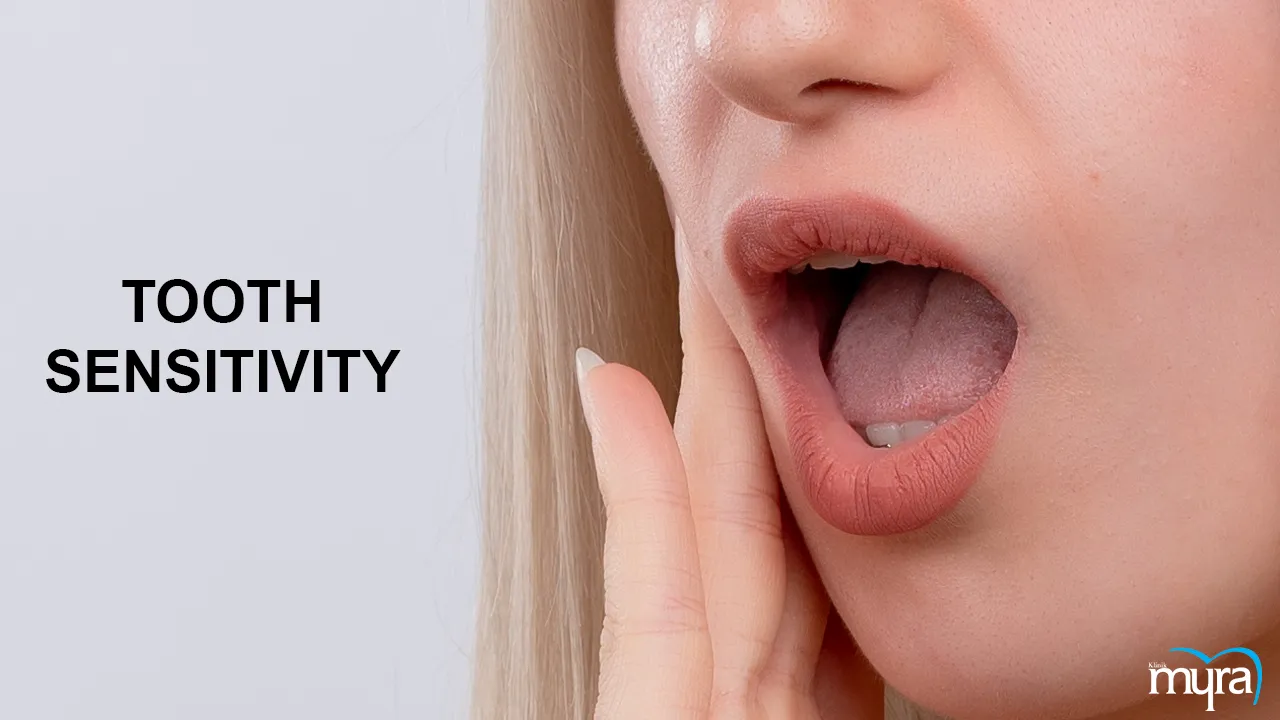 Patients are advised to use toothpaste designed for sensitive teeth to assist in reducing tooth sensitivity following the placement of veneers, to avoid biting or chewing on hard objects, and to avoid consuming meals and beverages that are unusually hot or cold. In certain instances, the dentist recommends that one use a fluoride gel or some other desensitizing agent to assist minimize the sensitivity in the teeth.
Patients are advised to use toothpaste designed for sensitive teeth to assist in reducing tooth sensitivity following the placement of veneers, to avoid biting or chewing on hard objects, and to avoid consuming meals and beverages that are unusually hot or cold. In certain instances, the dentist recommends that one use a fluoride gel or some other desensitizing agent to assist minimize the sensitivity in the teeth.
Tooth sensitivity is a common yet acceptable side effect caused by dental veneers. Patients who have substantial or chronic sensitivity to hot or cold temperatures must make an appointment with their dentist to rule out the possibility that the discomfort is caused by an underlying medical condition.
3. Irregularities in colour
Dental veneers have the unintended side effect of causing colour irregularities. It happens when the tint of the veneers is a little bit different from the natural shade of the neighboring teeth. Patients perceive the disparity under particular lighting conditions or from various perspectives.
colour irregularities still arise even with meticulous planning and precise hue selection for the veneer. Yet most patients get a natural-looking grin that melds with their natural teeth with careful attention to detail.
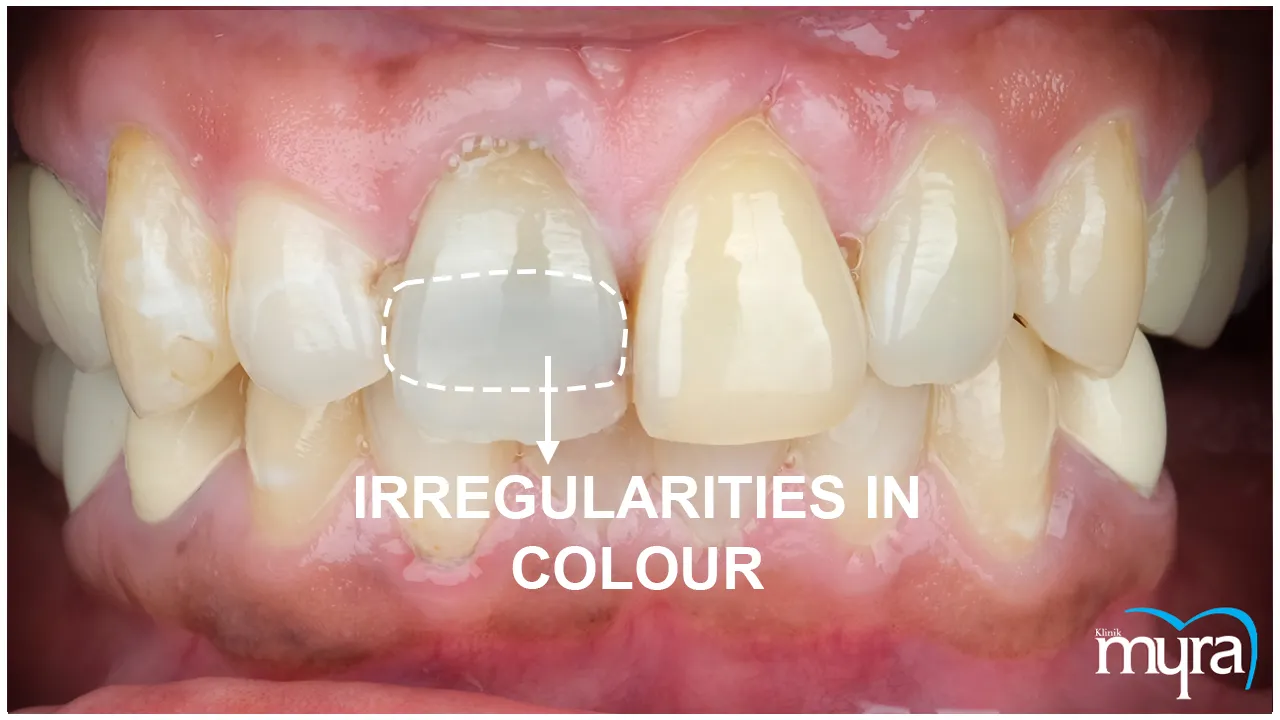 colour abnormalities happen for a number of causes. Secondly, it is more difficult to perfectly match the shade of the veneers since the colour of the neighboring teeth has altered over time as a result of staining, age, or other circumstances. Moreover, the placement of several veneers on various teeth produces slightly varying hues, which give the illusion of an uneven look.
colour abnormalities happen for a number of causes. Secondly, it is more difficult to perfectly match the shade of the veneers since the colour of the neighboring teeth has altered over time as a result of staining, age, or other circumstances. Moreover, the placement of several veneers on various teeth produces slightly varying hues, which give the illusion of an uneven look.
Dentists often take thorough measurements and utilize shade guidelines to choose the best colour for the veneers, minimizing colour inconsistencies. A patient occasionally needs to have the veneers altered or replaced to have a more natural appearance.
Nevertheless, the issues are frequently avoided with careful planning and close attention to detail, despite the possibility that dental veneers cause colour inconsistencies. Patients must let their dentist know if they detect any differences in the colour of their veneers to make sure they are satisfied with the results.
4. Inflamed Gums
Dental veneers cause gingival inflammation, sometimes referred to as “inflamed gums.” It happens when the veneers are not positioned properly, which irritates and inflames the gums. Patients suffer redness, swelling, pain, or bleeding in the gums around the veneers.
The installation of the veneers must be done correctly in order to prevent the side effect, which is uncomfortable and results in more serious dental issues if left ignored.
Inflamed gums develop for a number of causes, including incorrect veneer installation, poor dental care, or an allergic reaction to the veneer materials. Veneers that are either too thick or too thin irritate and inflame the gums.
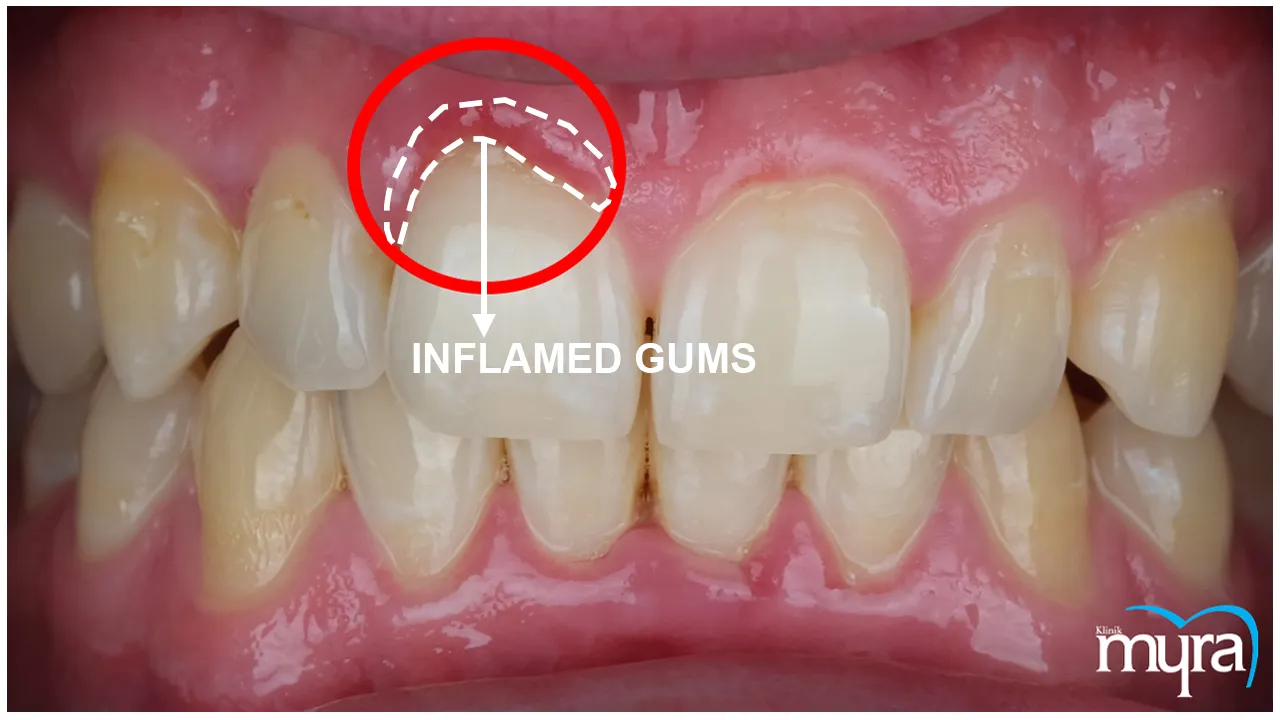 Patients must maintain proper dental hygiene, which includes routinely brushing and flossing their teeth as well as going to the dentist for checkups and cleanings, to reduce the risk of inflamed gums. A patient must call their dentist right away if they see any indications of gingival irritation following the placement of veneers. The veneers occasionally need to be changed or modified to stop the discomfort.
Patients must maintain proper dental hygiene, which includes routinely brushing and flossing their teeth as well as going to the dentist for checkups and cleanings, to reduce the risk of inflamed gums. A patient must call their dentist right away if they see any indications of gingival irritation following the placement of veneers. The veneers occasionally need to be changed or modified to stop the discomfort.
They are avoided with adequate installation and good oral hygiene habits even though swollen gums are a potential adverse consequence of dental veneers. Patients must inform their dentist if they feel any discomfort or irritation after receiving veneers in order to ensure that any difficulties are dealt with as soon as they arise.
5. Increased Chance of Tooth Pulp Damage
Dental veneers have a rare but potential adverse effect of increased risk of tooth pulp injury. The soft tissue that includes nerves and blood arteries inside the tooth is known as the tooth pulp. Too much dental enamel is removed during veneer preparation, which results in tooth pulp injury and discomfort for the patient.
It is imperative to let the dentist know if one encounters any severe pain or discomfort after obtaining veneers.
Tooth pulp injury happens when the dentist removes a little portion of tooth enamel to create a place for the veneer. Too much enamel removal exposes the pulp of the tooth, leaving it open to harm during veneer application. A patient is at a higher risk of tooth pulp injury if they have a history of dental decay or gum disease.
Dentists utilize precise measurements and sophisticated instruments to make sure that just the appropriate quantity of tooth enamel is removed during the preparation procedure, protecting the tooth pulp from harm. Patients must discuss with their dentist any worries they have regarding their oral health history to make sure they are getting the best care possible.
Therefore, it is crucial to let the dentist know if one has any severe pain or discomfort even though there is a little chance that obtaining veneers causes tooth pulp damage. The dentist evaluates the problem and offers the proper therapy to relieve the discomfort and stop additional damage.
What to know more about Dental Veneer?
Veneers are extremely thin shells that are custom-crafted for each individual patient using dental impressions. They are adhered to the front surfaces of teeth in order to improve the tooth's appearance in terms of its form, colour, and general appearance. They are an effective treatment for a wide range of dental issues, such as chipped, cracked, discoloured, or irregularly shaped teeth, amongst others. Porcelain or composite resin are the most common materials used in their construction. They make an excellent option because of their long-lasting structure and attractive natural appearance.
Dental veneers are often placed in a series of phases, the first of which is a consultation with a dentist to establish whether or not veneers are the best option to suit the demands of the patient. It is determined that veneers are the best option, and then the veneers are applied. The patient's dentist first has to prepare the teeth for the veneers by removing a little bit of enamel from each tooth
It is done to ensure that there is sufficient space for the veneers to be installed. The patient goes to the dentist to have an imprint made of their teeth after the teeth have been cleaned and prepared. It allows the veneers to be created to fit properly over the teeth once they have been placed. A particular glue is used in order to create a link between the veneers and the teeth that is both strong and long-lasting after that.
It is essential to have a conversation with a dentist about one's dental history and any prospective problems that are likely to arise in the future before having veneers for the teeth. Consumers need to be made aware that having veneers is a permanent treatment that involves removing a little but irreversible quantity of tooth enamel. The information must be communicated to consumers. Patients need to be informed of the information before they get veneers. Additionally, veneers are not appropriate for everyone; therefore, people considering having the operation done must be aware of the potential dangers and adverse effects that are involved with it before proceeding.
Porcelain and composite resin are the two materials that are used to produce dental veneers more frequently than any other. Patients who are searching for a solution to their dental problems that endures for a long time typically opt for porcelain veneers because of their strength, resistance to stains, and longevity. They are a well-liked choice as a result. Patients who are searching for a simpler and more cost-effective choice typically select composite resin veneers. It is due to the fact that composite resin veneers are less expensive than porcelain veneers and are made in just one dental session. The type of veneer material that is utilized is determined not only by the requirements and desires of the patient but by the suggestions made by the dentist.
What are the risks of having Dental Veneers?
There are a number of hazards and potential adverse effects to the operation, although dental veneers are often regarded as safe and effective. The dangers consist of dental sensitivity, dental veneers frequently cause tooth sensitivity as a side effect, as was already noted. It happens as a result of the veneers covering the tooth's surface, which increases its sensitivity to temperature fluctuations.
colour irregularities happen when the veneers' tint doesn't exactly match the surrounding teeth's natural hue, resulting in a slightly different colour. Gum inflammation is brought on by improperly placed veneers, which irritate and inflame the gums. An increased risk of dental pulp damage results from removing a little bit of tooth enamel during the preparation of teeth for veneers, which results in tooth pulp injury, which is painful and uncomfortable.
Allergic reactions, patients occasionally have an allergic response to the veneers' components. Patients with teeth that are chipped, broken, discoloured, or malformed are frequently advised to get dental veneers. They are used to lengthen teeth, make crowded teeth look less crowded, and close spaces between teeth. What are the risks of dental veneers? Dental veneers offer a long-lasting, natural-looking solution to a number of dental issues, but they carry certain potential risks. They comprise the aforementioned dangers in addition to the potential for the veneers to break or shatter over time, particularly if the patient grinds or clenches their teeth.
Teeth sensitivity, decay, or infection are only a few causes of toothache after veneers. A patient must seek quick dental care from their dentist to rule out any underlying dental issues if they suffer substantial pain or discomfort after receiving veneers.
Patients who have dental veneers have greater sensitivity to hot or cold conditions as a typical side effect. Patients control the sensitivity by using toothpaste made for sensitive teeth, avoiding particularly hot or cold drinks and meals, and waiting until it goes away on its own over time. Patients must get in touch with their dentist if the sensitivity persists or worsens to find out whether the veneers need to be adjusted.
What are the types of Dental Veneers?
Dental veneers come in three primary categories.
Listed below are the types of Dental Veneers.
- Porcelain veneers: They are constructed of thin, precisely crafted porcelain shells that are tooth-coloured and are glued to the fronts of teeth. They have a natural-looking, transparent appearance that resembles the appearance of actual teeth and are incredibly strong, stain-resistant, and durable. Compared to composite or ceramic veneers, porcelain veneers are often more costly and need several dental visits.
- Composite veneers: Direct application of composite resin material in a tooth-coloured hue produces composite veneers. They are a less expensive option than porcelain veneers and need fewer dentist visits. Composite veneers, however, are less enduring than porcelain or ceramic veneers and require more frequent replacement.
- Ceramic veneers: Ceramic veneers consist of a lighter, thinner dental porcelain, unlike traditional porcelain. They have a natural appearance that is comparable to that of genuine teeth and are extremely stain-resistant and durable. Ceramic veneers are frequently more expensive than composite veneers, although less expensive than porcelain veneers.
The patient's oral health, financial situation, and preferences all play a role in the decision between the two types of veneers. Porcelain veneers are a great choice for those searching for a durable, aesthetic solution to whiten their teeth. Composite veneers are a great choice for individuals on a tight budget or seeking a more temporary, less expensive option. Veneers made of ceramic provide a compromise between price and durability.
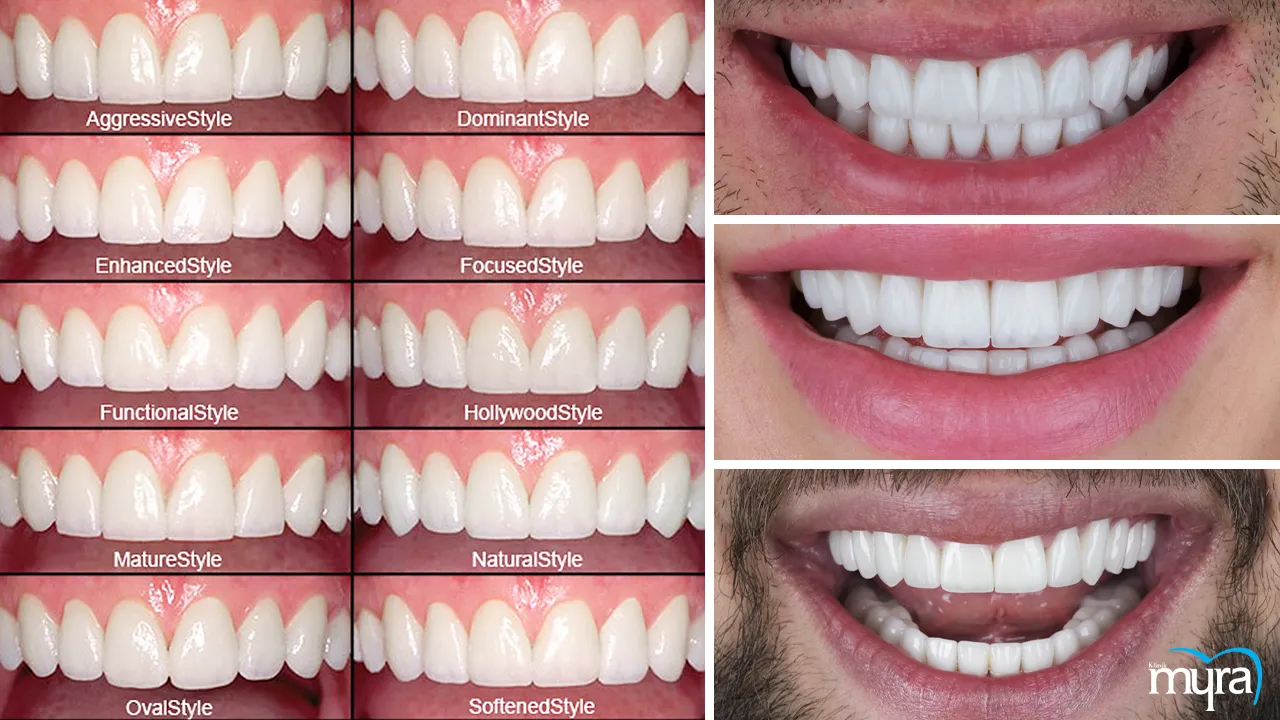 Porcelain veneers are the sort of dental veneers that are utilized the most frequently. It is due to its exceptional durability, stain resistance, and realistic appearance. The ideal types of veneer for each patient is chosen by a trained dentist, but ultimately, the choice of veneer material relies on the person's demands, tastes, and financial situation.
Porcelain veneers are the sort of dental veneers that are utilized the most frequently. It is due to its exceptional durability, stain resistance, and realistic appearance. The ideal types of veneer for each patient is chosen by a trained dentist, but ultimately, the choice of veneer material relies on the person's demands, tastes, and financial situation.
Who is eligible to take dental veneers?
Dental veneers are a type of cosmetic dentistry technique that improves the appearance of a person's teeth by concealing flaws such as stains, chips, and holes in the enamel. However, the acceptability of veneers for a particular person depends on a number of variables, including that person's oral health, the quality of their teeth, and their expectations. Dental veneers are frequently acceptable for people who have healthy teeth and gums, but the qualifications for using dental veneers vary for a particular person depending on a number of parameters.
Dental veneers are not necessarily a good option for those who have tooth decay, gum disease, or inadequate enamel since these conditions weaken the tooth's protective layer. Additionally, those who grind their teeth or clench their jaw are not excellent candidates for veneers since these activities increase the probability that the veneer is going to fracture or chip. Veneers are an option for people who do not grind or clench their teeth.
There is no upper age limit that must be adhered to while getting dental veneers. However, the vast majority of dentists recommend postponing the procedure until the individual's permanent teeth have completely matured, which often occurs in the late teens or early twenties of a person's life. Dental veneers are generally not recommended for children or adolescents whose teeth are still developing. It ensures that the veneers fit appropriately and that the individual's bite does not change as they become older.
It is essential to have an understanding that dental veneers are a type of cosmetic dentistry surgery, and that not everyone is eligible to have the operation done. Those who are considering having dental veneers first consult with an experienced dentist to find out whether they are a good candidate for dental veneers and to explore other alternative treatment options that are more suited for their unique needs. Those who are considering getting dental veneers find out if they are able to afford the procedure.
Do Dental veneers work for everyone?
No, dental veneers don’t work for everyone. There are some people who are not getting veneers for their teeth. People with a lot of tooth damage, gum disease, or other underlying dental problems are not good candidates for veneers, which make teeth look better. However, veneers are not always the best way to treat dental problems. People who regularly grind their teeth or clench their lips are not good candidates for veneers because the actions cause the veneers to chip or break.
Moreover, dental veneers are a cosmetic dentistry treatment and not a way to fix problems with the teeth that go deeper. One’s teeth and lips must be in good health, and any dental work that needs to be done must be done before veneers are put on for veneers to be put on.
It is important to talk to a trained dentist to find out if dental veneers are right for a person's needs. The person's oral health is looked at, and then the dentist talks with the person about any other treatment choices that are better.
Is it worth it to have a Dental Veneer?
Yes, having a dental veneer is worth it. Dental veneers enhance the appearance of teeth and increase self-confidence for some people. Veneers are another minimally invasive and relatively rapid cosmetic dental procedure that produce long-lasting results.
Tooth veneers, however, are not worthwhile for some people because of the price or the fact that they are a cosmetic procedure that doesn't deal with underlying tooth health problems. Additionally, maintaining veneers involves keeping the mouth clean and avoiding items that harm them.
It is important to speak with a trained dentist to see if dental veneers are a viable treatment option and to go over the potential advantages and disadvantages based on the person's needs and expectations before determining whether they are worth the cost.
Do veneers cause pain afterward?
No, veneers don’t cause pain afterward. Veneers for teeth seldom result in any discomfort. Veneers require a minimal amount of enamel to be removed, which results in increased sensitivity. However, it is easily treatable with over-the-counter pain relievers or desensitizing toothpaste. Veneers are applied in a rather painless procedure, and patients quickly get back to their daily routines.
Veneers are a great way to improve the appearance of a smile, but they cause temporary sensitivity to hot and cold temperatures as well as pressure for certain people. The sensitivity usually disappears within a few days to a few weeks as the teeth acclimatize to the veneers. Pain or discomfort occur seldom as a result of a veneer that doesn't fit properly or an allergy to the bonding substance used to adhere the veneers.
It is important to talk to a dentist about the procedure's pros and downsides and how to handle any pain that arises afterwards before obtaining veneers.





